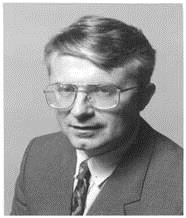Advance Organizers
Definition
According to Ausubel (1960), learning is based upon the kinds of superordinate, representational, and combinatorial processes that occur during the reception of information.
An advance organizer is
- a tool or a mental learning aid that helps students integrate new information with their existing knowledge, leading to meaningful learning as opposed to rote memorization;
- a means of preparing the learner’s cognitive structure for the learning experience about to take place;
- a device for activating the relevant schema or conceptual patterns so that new information can be more readily subsumed into the learner’s existing cognitive structures.
Basic Assumptions and Principles
The primary idea of Advance Organizer theory is that learning of new knowledge is dependent on what is already known. Two principles behind advance organizers are related to the explanation of how people acquire knowledge.
- Progressive differentiation: working from general concepts to specific concepts of any given discipline;
- Integrative reconciliation: relating of new ideas to prior knowledge.
Ausubel further distinguished between two kinds of advance organizer:
Comparative Organizers
Comparative organizers are used with information with which the student already is somewhat acquainted. By acting as reminders, the organizer activates existing schemas, and builds on the prior knowledge of the students.
A comparative organizer is used both to integrate as well as discriminate (Ausubel, 1968, p. 149). It:
- integrates new ideas with basically similar concepts in cognitive structure; and
- increases discriminability between new and existing ideas that are deceptively similar but have essential differences.
Expository Organizers
In contrast, expository organizers are often used when the new learning material is unfamiliar to the learner, and the learner require some scaffolding to link the new concepts to what they already know.
Thus, familiarity with the new material is key to determining which type of organizer needs to be used.
Primary Theorist
David Ausubel

Figure 1. David Ausubel. Source: http://simplebooklet.com/userFiles/a/1/0/7/7/1/3/3CAMqilN67rxirJGzdHqYB/XbDLalCu.jpg
The most significant contribution of David Ausubel was the development and research on advance organizers since 1960. His research in the field of educational psychology and cognitive science was influenced by Piagets conceptual schemes (schemata).
From this perspective, an advance organizer is a cognitive instructional strategy that is used to promote the learning and retention of new information. Specifically, new material is related to relevant ideas in the existing cognitive structure on a substantive, non-verbatim basis.
Classroom Implications and Teaching Strategies
Ausubel believed that learning is based upon the kinds of superordinate, representational, and combinatorial processes that occur during the reception of information. A primary process in learning is to start with a “Big Picture” of the upcoming content, and link new ideas, concepts, vocabulary, to existing mental maps of the content area.
According to Ausubel, it is important for teachers to:
- provide a preview of information to be learned by providing a brief introduction about the way that information that is going to be presented;
- link old information to something new being taught, which helps students to recognize that the topic they are beginning to learn is not totally new, but can be related to a previously learned concept or process.
According to Joyce et al. (2000), the advance organizer model has three phases of activity:
Phase I (includes presentation of the advance organizer)
- Clarify the aims of the lesson
- Present the advance organizer
- Prompt for awareness of relevant knowledge
Phase II (includes making links to/from the organizer)
- Present the learning task or learning material
- Make the organization and logical order of the learning material explicit
Phase III (strengthening of the cognitive organization)
- Integrative reconciliation and active reception learning (e.g. the teacher can ask learners to make summaries, to point our differences, to relate new examples with the organizer).
- Elicit a critical approach to the subject matter (have students think about contradictions or implicit inferences in the learning material or previous knowledge)
Advance organizers provide the necessary scaffolding for students to either learn new and unfamiliar material or to integrate new ideas into relatively familiar ideas.
The following strategies can be used to implement Advance Organizers:
- review basic concepts prior to studying a new concept;
- have students identify the characteristics of a known phenomenon and then relate them to the new concept;
- give a scenario and ask students to infer rules based upon their current knowledge;
- use charts, diagrams, oral presentations, or concept maps;
- ask students to compare and contrast the new content based on what they already know; and
- identify a problem and ask for a reason why it may occur (before teaching the reason).
Resources
Key Works
- Ausubel, D. (1978). In defense of advance organizers: A reply to the critics. Review of Educational Research, 48, 251-257.
- Mayer, R. E. (1979). Can advance organizers influence meaningful learning? Review of educational research, 49(2), 371-383.
- Joyce, B., Weil, M., Calhoun, E. (2000). Models of teaching, 6th edition, Allyn & Bacon
Further Reading
- Ausubel, D. P. (1960). The use of advance organizers in the learning and retention of meaningful verbal material. Journal of Educational Psychology, 51, 267-272.
- Ausubel, D. P., & Robinson, F. G. (1969). School learning: An introduction to educational psychology. New York: Holt, Rinehart and Winston.
- Joyce, B., Weil, M., Calhoun, E. (2000). Models of teaching, 6th edition, Allyn & Bacon